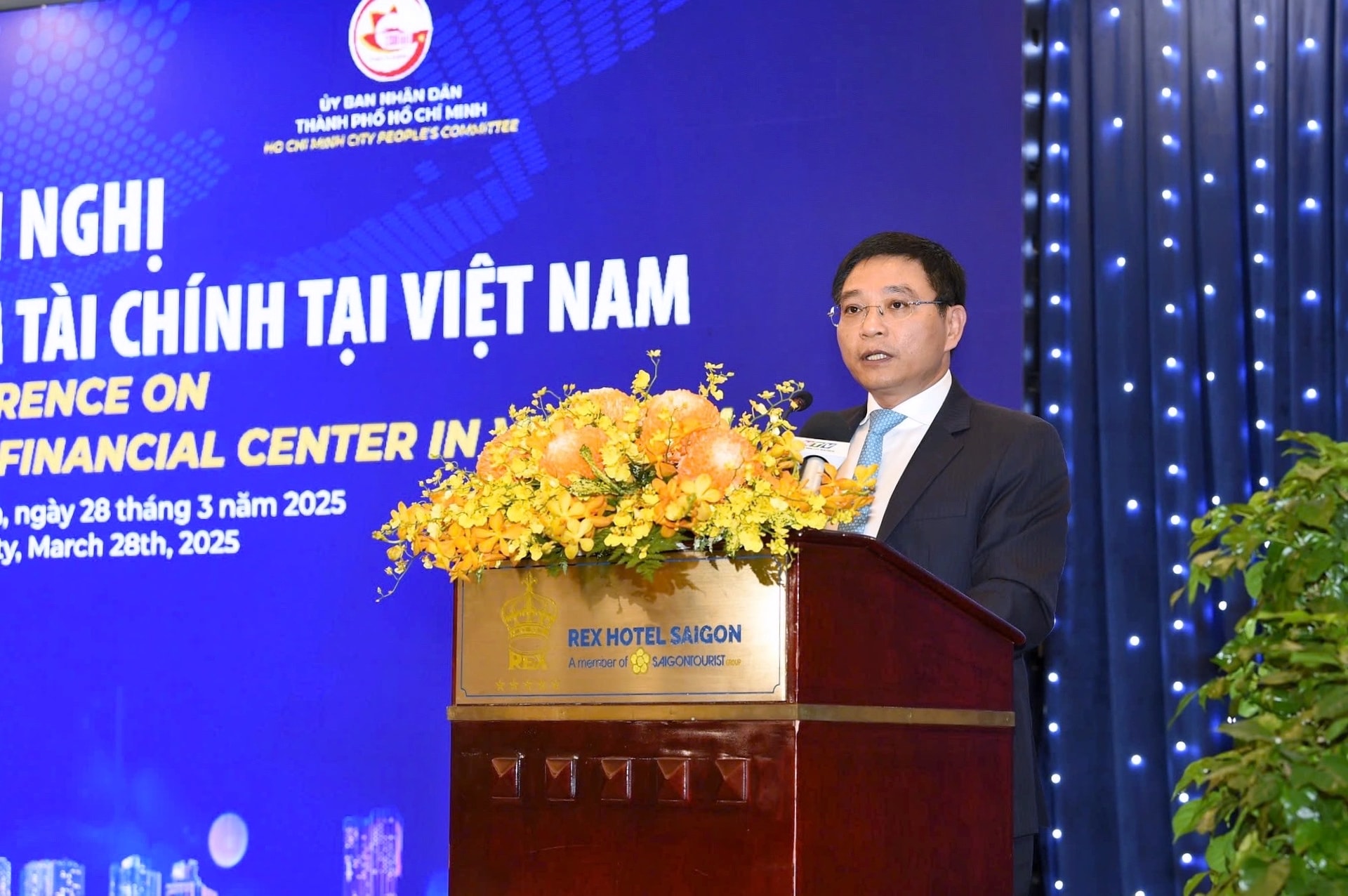Vietnam commits to developing investor-friendly financial centers
Vietnam’s unique time zone, differing from the world's 21 largest financial centers, presents an opportunity to attract idle capital during off-market hours.
THE HANOI TIMES — Vietnam is committed to developing an open, transparent, modern, and investor-friendly financial center to ensure national financial stability and security.

Minister of Finance Nguyen Van Thang at a conference on March 28. Photos: MoF
"We will move forward while learning from experience, neither rushing nor seeking perfection, in order to seize opportunities," said Minister of Finance Nguyen Van Thang at a conference on the upcoming financial centers in Ho Chi Minh City and Danang on March 28.
According to Thang, Vietnam's strategic location at the crossroads of major maritime routes and in the heart of Southeast Asia positions it as a potential financial hub.
"Its unique time zone, different from the world's 21 largest financial centers, provides an opportunity to attract idle capital during off-hours," he added.
While establishing a financial center is not a new concept globally, the Finance Minister acknowledged that it remains a complex and unprecedented challenge for Vietnam.
Experts at the conference outlined possible strategies, emphasizing that Ho Chi Minh City should develop a financial center with its own distinctive identity while learning from successful global models.
.jpg)
Experts at the event.
Jens Lottner, CEO of Techcombank, identified three key areas where Vietnam could gain a competitive edge.
The first is green finance, he said, noting that Vietnam has the potential to meet all its energy needs from renewable sources. But doing so would require massive infrastructure investment.
The second strength, according to Lottner, is digital financial services. One in three Vietnamese own digital assets or cryptocurrencies. This suggests significant potential for the country to develop financial products, including tokenized assets and digital currencies. Business demand for such technologies will drive innovation in digital finance, he continued.
The third area is trade finance, which Lottner believes could be revolutionized by technology. Vietnam is poised to become a smart manufacturing hub, with major foreign direct investment (FDI) firms such as Foxconn investing in artificial intelligence (AI).
Lottner envisions a world where every product, like an iPad, is tracked from the assembly line to delivery using blockchain technology.
This would fully integrate financial transactions into supply chains without additional paperwork, he said.
None of these three sectors is currently dominated by a major global financial center, so Vietnam is well positioned to take the lead given its strong demand, skilled workforce, and intellectual resources, he stated.
Meanwhile, Andrew Oldland, Head of TheCityUK's International Financial Centre Working Group, highlighted key areas for development, including capital markets, improving access to finance for small and medium-sized enterprises (SMEs), and strengthening the derivatives market.
On capital markets, Mr. Oldland highlighted the importance of Vietnam's transition from a frontier market to an emerging market with areas for improvement, such as transparency, registration processes, and clearing and settlement mechanisms. Institutional investor participation remains limited, which needs to be addressed, especially as Vietnam prepares for future pension fund management.
He also recommended policies to retain startups and facilitate their access to capital. The commodities market, particularly derivatives, was another sector he suggested could operate more efficiently.
Other priorities, such as green finance and fintech, should be aligned with Vietnam's broader national strategies, Oldland added. He stressed the need for a gradual, cautious approach that takes into account the country's political and economic context.
Speaking at the conference, Nguyen Van Duoc, Chairman of the Ho Chi Minh City People's Committee, reaffirmed the city's commitment to improving the investment climate, strengthening the regulatory framework, enhancing competitiveness, and developing digital infrastructure to international standards.
He added that the creation of an international financial center would not only benefit Ho Chi Minh City’s economy but also have a broader impact on the surrounding urban areas and the Southeast Asian region.










